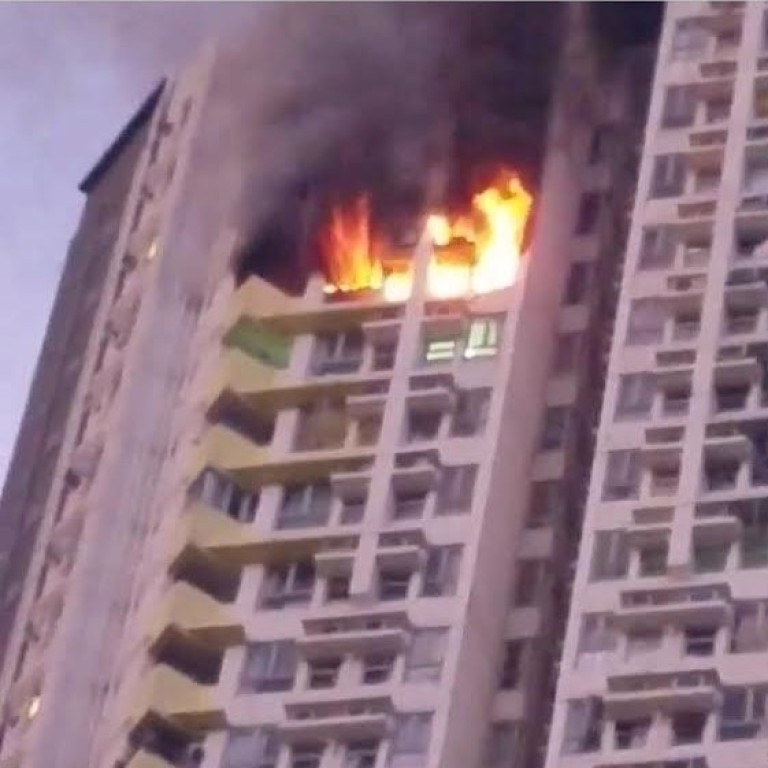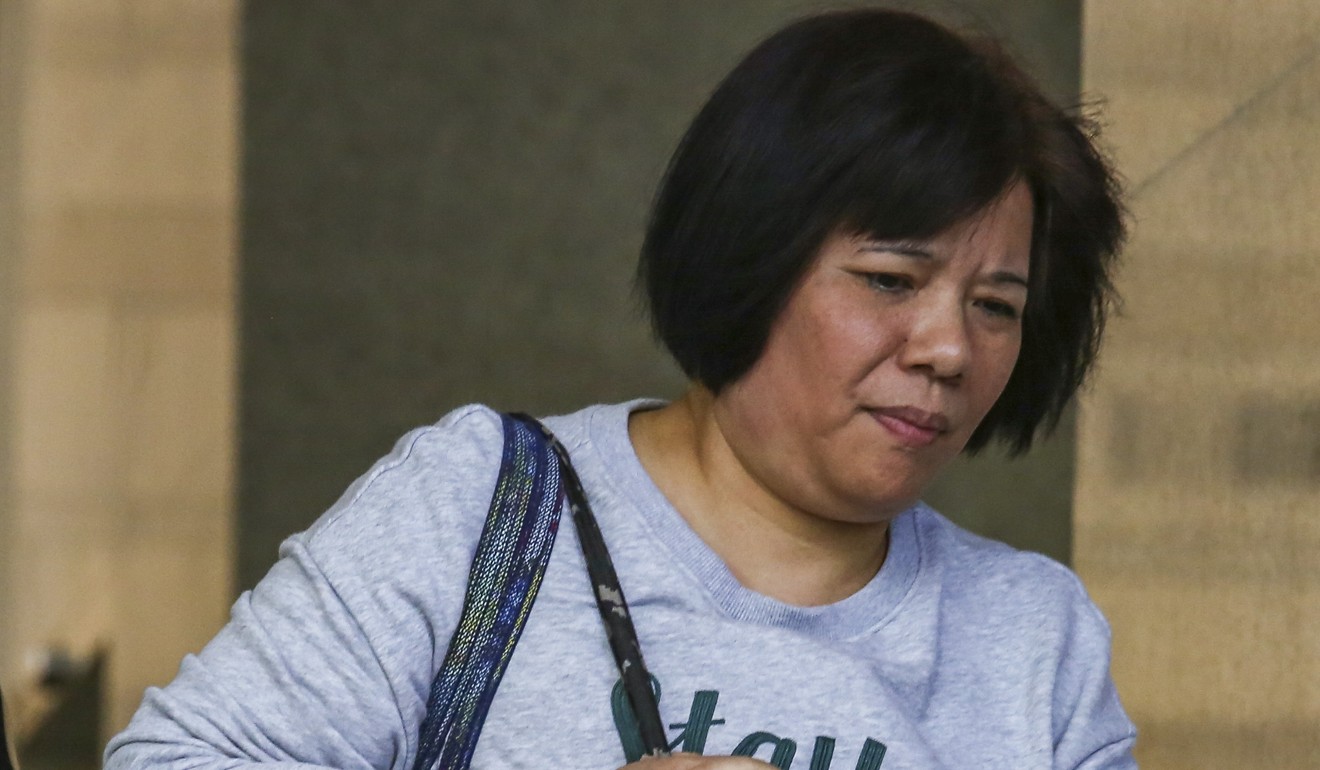
Coroner calls on Hong Kong housing group to review policy on problem tenants after ruling family were killed unlawfully by violent neighbour
- Housing Society urged to change rules after Hui Wai-chung was allowed to remain in building despite threats
- Officials claimed they can’t move someone without their consent if rent is paid on time
The city’s coroner has called on the Housing Society to review its policy regarding its problem tenants after a Hong Kong man set fire to his neighbour’s flat killing himself and the family of three in 2016.
On Tuesday, Ko Wai-hung asked the public housing estate operator to rethink its approach after learning that staff at Kwun Lau Lung – an estate under its control in Kennedy Town – could not reassign Hui Wai-chung, a 63-year-old man with a history of violence, to another flat even though they knew he had been hostile towards Huang Zhiqiang, 26, his wife Wu Qianxin, 25, and their three-year-old daughter Huang Yilin.
A fire destroyed the family’s 13th-floor flat on July 16, killing Wu and her daughter. Huang Zhiqiang fell to his death while trying to escape.

Having heard about the threats Hui had made against the family, Ko concluded he must have killed the child and her mother unlawfully that day by setting fire to their flat with paint thinner.
Huang, he found, died of misadventure, while Hui was killed when he set his own flat on fire.
“It was a real tragedy, where in the matter of a night, a family was shattered,” the corner said, while offering his condolences to the family of Hui’s victims.
The policy which drew the coroner’s attention was that the Housing Society would not move Hui without his consent, as long as he had paid the rent.
“This is not a very ideal situation,” he said.
Ko urged the Housing Society to review its existing policy, and contemplate mandatory reassignment in cases where the tenants caused a nuisance.
Owner of subdivided Hong Kong flat where fire killed three could be prosecuted
Outside court, Lee Suet-kwan, Huang’s mother, said the tragedy could have been avoided if what Ko suggested had been put in place at the time, blaming the society for its lack of action.
“They [her family] will be in my heart for the rest of my life,” she said.
The inquest, which began last week, heard from surviving family, neighbours, fire officers and a forensic scientist in a bid to reconstruct the events of 2016.
It heard that months before fire, Hui had already begun complaining about the noise level of his neighbours. In particular, he took issue with the Huangs and their three-year-old girl, who lived opposite him.
The 63-year-old also expressed his anti-immigrant stance when making unsubstantiated complaints against the Huangs, who were from Foshan in mainland China.
Woman found dead after fire in Hong Kong flat
Hui, who suffered from depression and had been jailed for two months for assault, had threatened the Huangs, and pointed a loud radio in the direction of their flat at times, the inquest heard.
In his summation, Ko ruled there might have been a dispute between Wu and Hui that night, prompting Hui to pour thinner into his neighbour’s flat and setting it on fire. He cited testimony from other people in the building that there were shouting between a man and a woman shortly before the blaze.
During the inquest, Kwan Wai-kwok, a former housing officer who handled Hui’s complaints, spoke of his feeling of helplessness because of the society’s legal power to act against Hui.
But on Tuesday the corner accused him of having an indifferent attitude, after he testified that he did not call the police because the threat was made by Hui against the Huangs, not him.
“I was surprised by his indifference,” Ko said.
A spokesman from the Housing Society said they would look into Ko’s findings.

